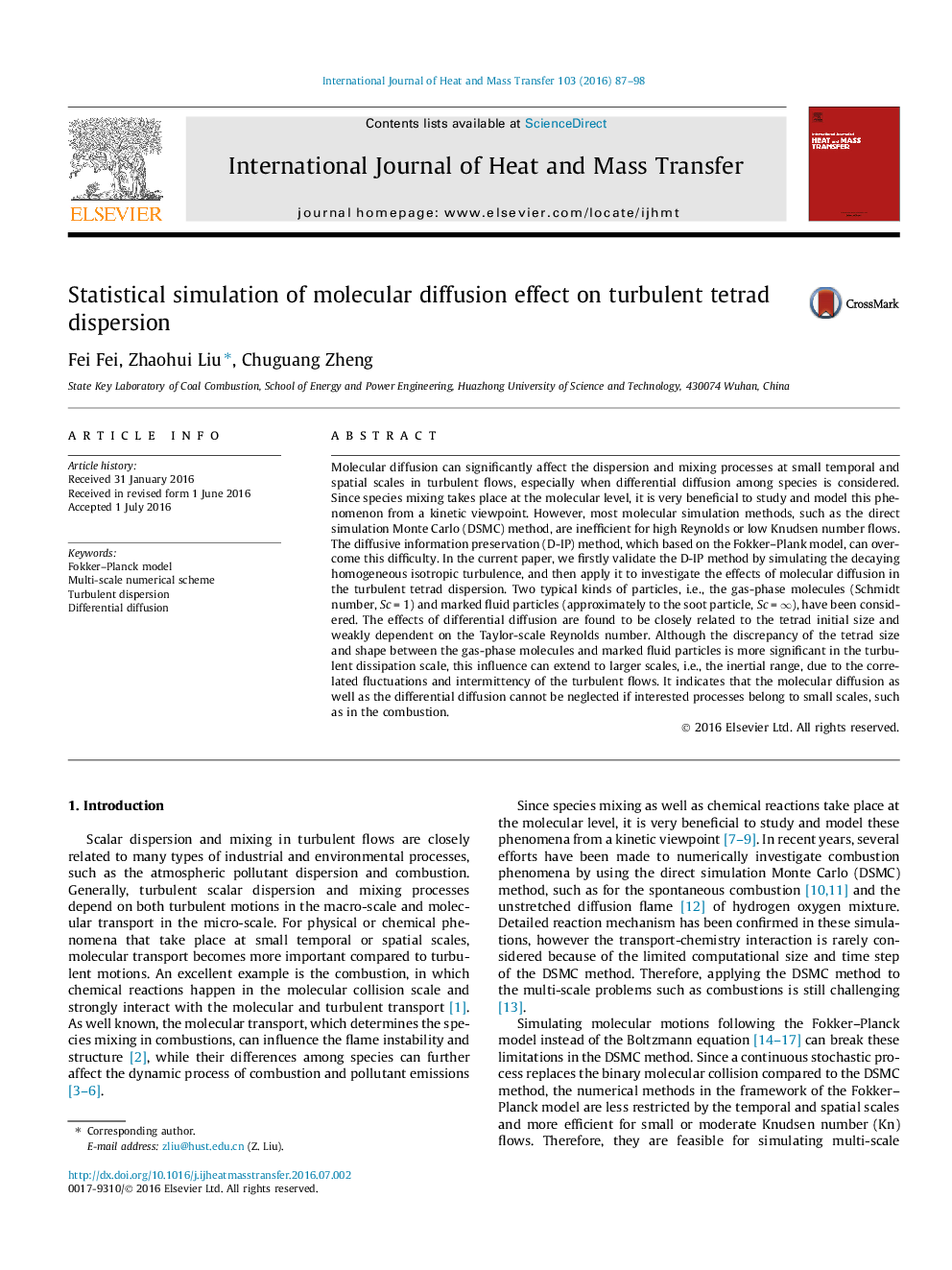| Article ID | Journal | Published Year | Pages | File Type |
|---|---|---|---|---|
| 7054949 | International Journal of Heat and Mass Transfer | 2016 | 12 Pages |
Abstract
Molecular diffusion can significantly affect the dispersion and mixing processes at small temporal and spatial scales in turbulent flows, especially when differential diffusion among species is considered. Since species mixing takes place at the molecular level, it is very beneficial to study and model this phenomenon from a kinetic viewpoint. However, most molecular simulation methods, such as the direct simulation Monte Carlo (DSMC) method, are inefficient for high Reynolds or low Knudsen number flows. The diffusive information preservation (D-IP) method, which based on the Fokker-Plank model, can overcome this difficulty. In the current paper, we firstly validate the D-IP method by simulating the decaying homogeneous isotropic turbulence, and then apply it to investigate the effects of molecular diffusion in the turbulent tetrad dispersion. Two typical kinds of particles, i.e., the gas-phase molecules (Schmidt number, Sc = 1) and marked fluid particles (approximately to the soot particle, Sc = â), have been considered. The effects of differential diffusion are found to be closely related to the tetrad initial size and weakly dependent on the Taylor-scale Reynolds number. Although the discrepancy of the tetrad size and shape between the gas-phase molecules and marked fluid particles is more significant in the turbulent dissipation scale, this influence can extend to larger scales, i.e., the inertial range, due to the correlated fluctuations and intermittency of the turbulent flows. It indicates that the molecular diffusion as well as the differential diffusion cannot be neglected if interested processes belong to small scales, such as in the combustion.
Related Topics
Physical Sciences and Engineering
Chemical Engineering
Fluid Flow and Transfer Processes
Authors
Fei Fei, Zhaohui Liu, Chuguang Zheng,
